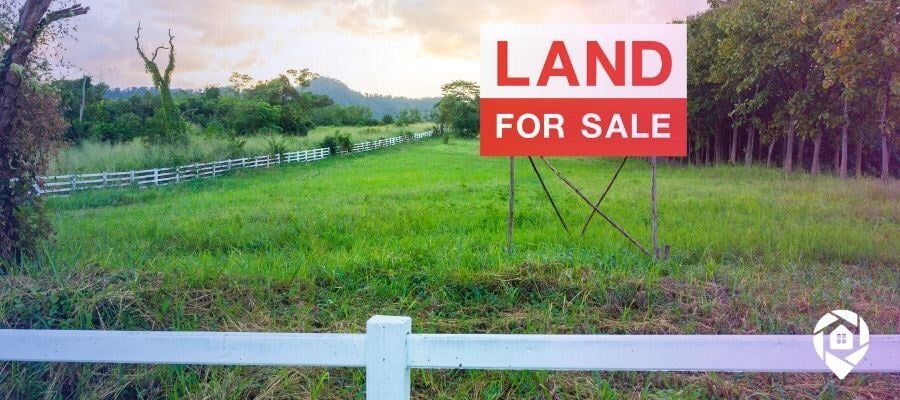
Is Flipping Land a Profitable Investment Strategy?

Walk into any gathering of real estate investors and you're bound to hear spirited discussions on everything from housing market predictions to the latest tips in rental property management. However, one topic that often gets overlooked is the concept of land investment.
Why is that? Is land considered an investment property? This conundrum presents an exciting investment rollercoaster ride that we are about to embark on. Let's dive in!
A piece of land for sale has always been an intriguing prospect for many real estate investors. It's raw, it's versatile, and it will always be in demand. While others rush towards the frenzy of flipping houses, the smart real estate investor knows that every property - houses, buildings, or warehouses - starts with that raw piece of land.
A Piece of Land: The Foundation of Real Estate Investing
Let's start with the fundamental difference between land investing and other types of real estate investing. Land, unlike other property types, is not defined by the structure built on it.
Rather, it represents the earth, the core component of real estate itself. The reality is that there is a finite amount of it. Every piece of real estate ever purchased or constructed started as a vacant land.
From commercial plots in booming urban areas to undeveloped residential tracts in pastoral settings, types of land investments are as varied as the investors who pursue them. Through the lens of investment strategy, each type of land purchased presents distinctive prospects and challenges.
The Pros and Cons of Land as an Investment Option
Land investments have a host of appealing attributes. Liquidity, appreciation potential, diverse application including rental or lease, minimal competition are all compelling reasons why genuine land investors are attracted to vacant land. Typically, there’s less competition in purchasing land, giving you more options to choose from, without having to enter into a bidding war.
But it's not all rosy on this end of the investment spectrum. It is vital to discuss the potential downsides, including inconsistent cash flow, demanding due diligence process, complex zoning restrictions, and marketing challenges. A vacant piece of land requires capital without offering immediate returns. Also, every landowner knows that finding a buyer may not be as easy as selling a house.
How to Choose Prime Land for Your Investment Portfolio
Now we're down to the crux of the matter. How exactly does an investor choose a quality piece of land that can enrich their investment portfolio?
Just like any real estate investing strategy, it boils down to location, location, location. The right location will always sell, making it an incredible investment opportunity. Accessibility to highways, schools, shopping districts, and local amenities matter.
Performing thorough due diligence helps. Investigating zoning restrictions, understanding future development plans in the region, environmental and soil conditions are all important factors for a successful investment strategy. Knowing these will prevent you from buying a piece of land deemed non-buildable or one located in a flood zone.
Investing in land can be a smart move if it aligns with your overall investment strategy. It's about understanding the terrain, doing your homework, and making savvy, strategic decisions about when, where, and how to buy land.
Conclusion
So, is land considered an investment property? Absolutely yes. It is an overlooked method of real estate investing that is versatile, potentially profitable, and ripe with opportunities for those willing to navigate its unique challenges.
To shift your real estate journey into high gear and learn more about becoming a successful investor check out more articles here on DealMachine. We are here to support you every step of the way from finding a valuable piece of land for sale to drafting a solid investment strategy.

About Samantha Ankney
Samantha is the Social Media Manager at DealMachine, where she oversees all social media strategies and content creation. With 3 years of experience at the company, she originally joined as a Media Specialist, leveraging her skills to enhance DealMachine's digital presence. Passionate about connecting with the community and driving engagement, Samantha is dedicated to sharing valuable insights and updates across all platforms.



